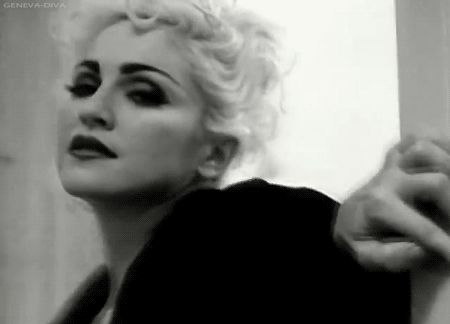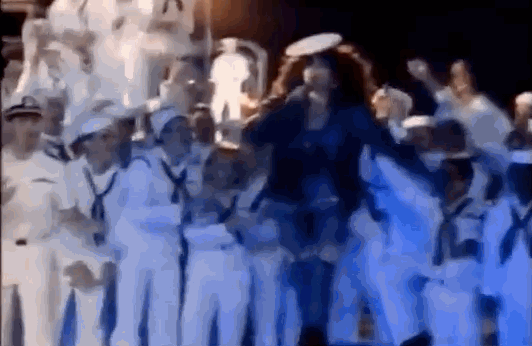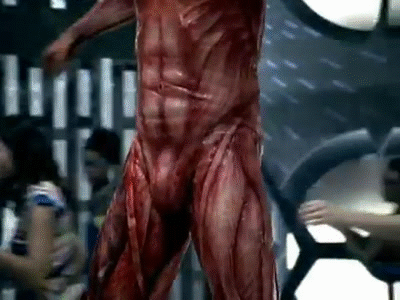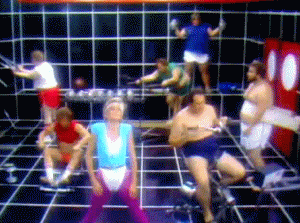A HISTORY OF MUSIC VIDEO CONTROVERSY
f you've been following us, you'll know we have a deep love for music videos. For those of us who grew up in the 80s and 90s, MTV wasn't just a channel; it was a cultural lifeline. But where there's art that pushes boundaries, there's inevitably controversy and censorship.
This post is a dedicated timeline to the most infamous, shocking, and groundbreaking music videos that were banned, edited, or sparked public outcry.
The 1980s: The Birth of a Medium and Its Rules
The dawn of the MTV era immediately created a need for content guidelines, and artists were quick to test them.
Queen - "Body Language" (1982): Holds the dubious honor of being the first video banned by MTV. The channel deemed its sweaty, minimalist, and suggestive vibe unsuitable for television.
Watch the banned video: Queen - Body Language on YouTube
Duran Duran - "Girls on Film" (1981): The BBC banned the uncut version for its depictions of topless women mud wrestling and sexual fetishes. MTV aired a heavily edited version.
Watch the controversial version: Duran Duran - Girls on Film (Uncensored) on YouTube
Laura Branigan - "Self Control" (1984): Directed by Oscar-winner William Friedkin (The Exorcist), this dark, stylized video featured Branigan being lured through debauched clubs by a masked figure. MTV refused to air it until edits were made.
Watch the director's vision: Laura Branigan - Self Control on YouTube
Mötley Crüe - "Girls, Girls, Girls" (1987): Banned by MTV for featuring fully nude dancers in a strip club setting surrounding the band.
Watch the banned video: Mötley Crüe - Girls, Girls, Girls on YouTube
Cher - "If I Could Turn Back Time" (1989): Her infamous navy outfit was deemed too revealing, leading MTV to restrict the video to late-night broadcasts only, which of course only fueled its notoriety.
Watch the controversial video: Cher - If I Could Turn Back Time on YouTube
Frankie Goes to Hollywood - "Relax" (1983): A prime example of using controversy for promotion. The BBC banned the sexually charged video, but the scandal helped propel "Relax" to become one of the best-selling singles of the decade in the UK.
Watch the banned video: Frankie Goes to Hollywood - Relax on YouTube
The 1990s: Pushing Social and Religious Boundaries
The 90s saw artists tackling more complex and taboo subjects, leading to even bigger clashes with networks.
Madonna - "Justify My Love" (1990): Perhaps the most famous MTV ban. The black-and-white video featured depictions of S&M, cross-dressing, and group sexuality. It was outright banned, leading Madonna to famously debate the topic on Nightline.
Watch the banned video: Madonna - Justify My Love on YouTube
Michael Jackson - "Black or White" (1991): The initial broadcast version featured a long, morphing dance sequence where Jackson grabbed his crotch and smashed car windows. Public outcry led to the controversial ending being permanently cut from future airings.
Read about the controversy: MTV News Archive on 'Black or White'
The Shamen - "Ebeneezer Goode" (1992): Banned by the BBC for its not-so-subliminal endorsement of Ecstasy ("Ezer Goode" = "Es are good").
Watch the banned video: The Shamen - Ebeneezer Goode on YouTube
The Prodigy - "Smack My Bitch Up" (1997): Banned by many networks for its first-person, drug-and-alcohol-fueled narrative that culminates in a shocking gender-reveal twist. Despite the ban (or because of it), it went on to win MTV awards for Best Dance Video and Breakthrough Video.
Watch the controversial video: The Prodigy - Smack My Bitch Up on YouTube
The 2000s: Shock Value and Social Commentary
Controversy evolved to include parody, homoeroticism, and stark social realism.
Robbie Williams - "Rock DJ" (2000): Censored for daytime play in the UK for its graphic ending where Williams strips off his skin and muscle to win over a DJ. Aired unedited only after the 10 pm watershed.
Watch the controversial video: Robbie Williams - Rock DJ on YouTube
t.A.T.u. - "All the Things She Said" (2002): Caused a global firestorm for its depiction of underage singers Lena Katina and Yulia Volkova kissing in the rain. The controversy became the core of their marketing strategy.
Watch the controversial video: t.A.T.u. - All The Things She Said on YouTube
Eminem - "Just Lose It" (2004): Banned from BET and condemned by Michael Jackson for its cruel parody of his plastic surgery, child molestation trial, and the Pepsi hair fire incident.
Watch the controversial video: Eminem - Just Lose It on YouTube
Justice - "Stress" (2008): Boycotted by music channels for its unflinching portrayal of a gang of North African-French youths committing random acts of violence in Paris, leading to widespread accusations of racism and glorifying violence.
Watch the controversial video: Justice - Stress on YouTube
The 2010s: Shock and Censorship in the Digital Age
Even as music television declined, videos could still cause a digital-era uproar.
M.I.A. - "Born Free" (2010): Director Romain Gavras's brutal nine-minute short film depicted the genocide of redheaded men. It was pulled from YouTube for graphic violence and reinstated with an age restriction, becoming one of the most talked-about pieces of music media of the year.
Watch the controversial video: M.I.A. - Born Free on YouTube (Content Warning: Extreme Violence)
Rihanna - "S&M" (2011): Banned in 11 countries and age-restricted on YouTube for its BDSM-themed imagery, including whipping, bondage, and a lesbian kiss.
Watch the controversial video: Rihanna - S&M on YouTube
Interested in more deep dives into iconic music videos and the stories behind them? Read more on our site and follow us for your daily dose of visual nostalgia and trivia.
Interested? Read more.







